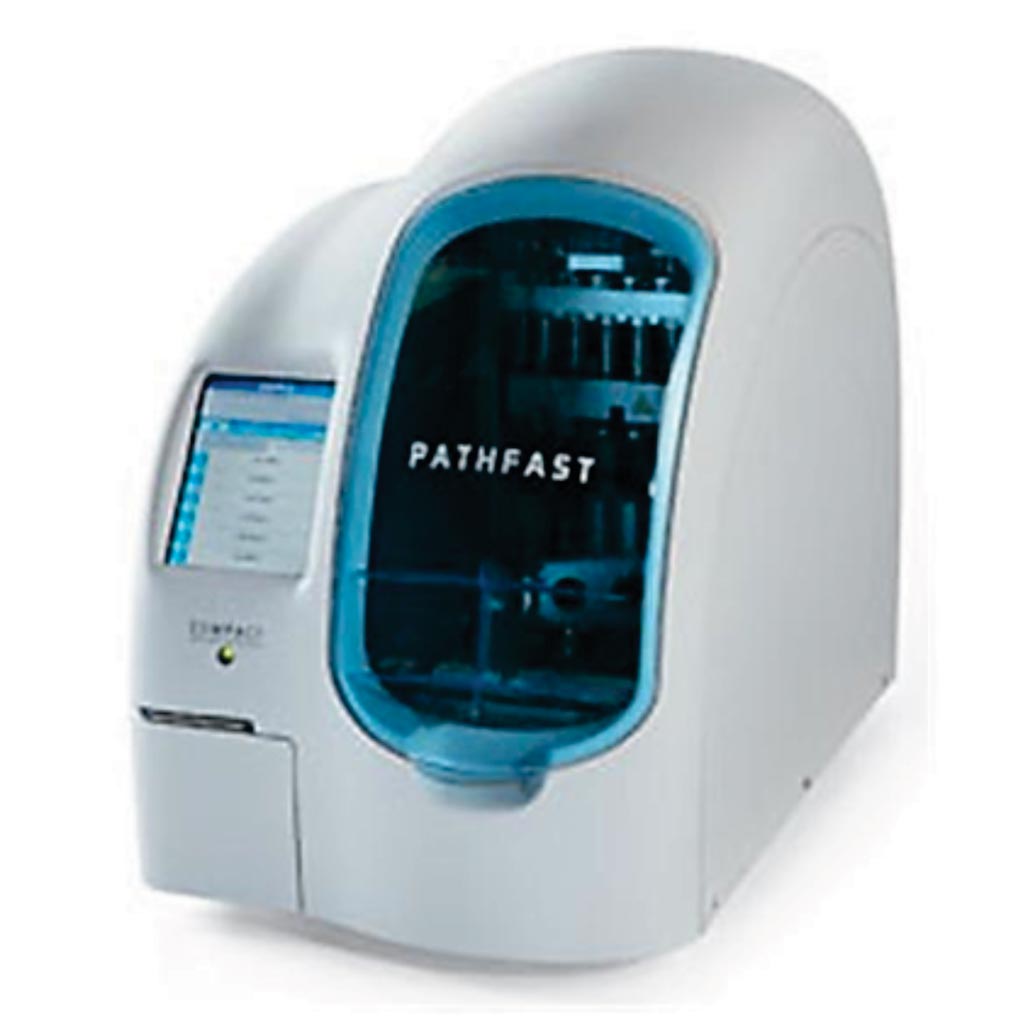Presepsin Concentrations Correlate with Kidney Function Decline
By LabMedica International staff writers
Posted on 24 Oct 2019
Sepsis is an important public health problem with more than 750,000 patients reported yearly in the USA with similar figures in Europe. Sepsis continues to be a challenge for practitioners, as sepsis mortality rates are still high despite new antimicrobial and resuscitation agents.Posted on 24 Oct 2019
Chronic kidney disease (CKD) is a worldwide health problem and its prevalence is rising, particularly in the elderly, mainly reflecting the increased life expectancy of the global population. The plasma presepsin concentrations of healthy individuals are very slight, but have been shown to increase in response to bacterial infections according to disease severity.

Image: The PATHFAST compact benchtop automatic immunoassay analyzer (Photo courtesy of LSI Medience).
Medical scientists at the Nippon Medical School (Tokyo, Japan) and their colleagues enrolled CKD patients aged ≥65 years who had visited a nephrology outpatient department between April 2015 and March 2016. The median age of patients of this cohort was 77.8 (72-85) years and the mean estimated glomerular filtration rate (eGFR) was 51.8 ± 28.1 mL/min/1.73m2.
Serum creatinine was measured in serum specimens using an automated enzymatic method. Normal values of serum creatinine are <1.1 mg/dL for men and 0.7 mg/dL for women. Serum cystatin C was measured using a particle-enhanced immunonephelometric assay with the Siemens BN ProSpec nephelometer. C-reactive protein (CRP) was measured by latex-enhanced immunonephelometric assay with the Siemens BN ProSpec nephelometer.
Plasma presepsin concentrations were measured using an automated immunoassay analyzer based on noncompetitive chemiluminescent enzyme immunoassay. The relationship between plasma presepsin concentration and kidney function was assessed. eGFRcr, eGFRcys, CKD-EPI eGFRcr-cys were used to classify patients by GFR stage (G1-G5).
The scientists reported that plasma presepsin concentrations in those with CKD G4-G5 (362 pg/mL [273-553]) were significantly higher than in those with CKD G1-G2 (111 pg/mL [91-113]) and CKD G3 (145 pg/mL [124-205]). A high correlation between plasma presepsin concentrations and kidney function was observed. Even after adjusting for confounders, plasma presepsin concentrations were independently associated with kidney function.
The authors concluded that they had found that increases in plasma presepsin concentrations were exponentially correlated to decline in kidney function in the elderly with CKD. Prediction of plasma presepsin concentrations through commensurate decline in kidney function in the elderly should help in the precise diagnosis of sepsis in clinical practice. The study was published on October 5, 2019, in the journal Clinica Chimica Acta.
Related Links:
Nippon Medical School














